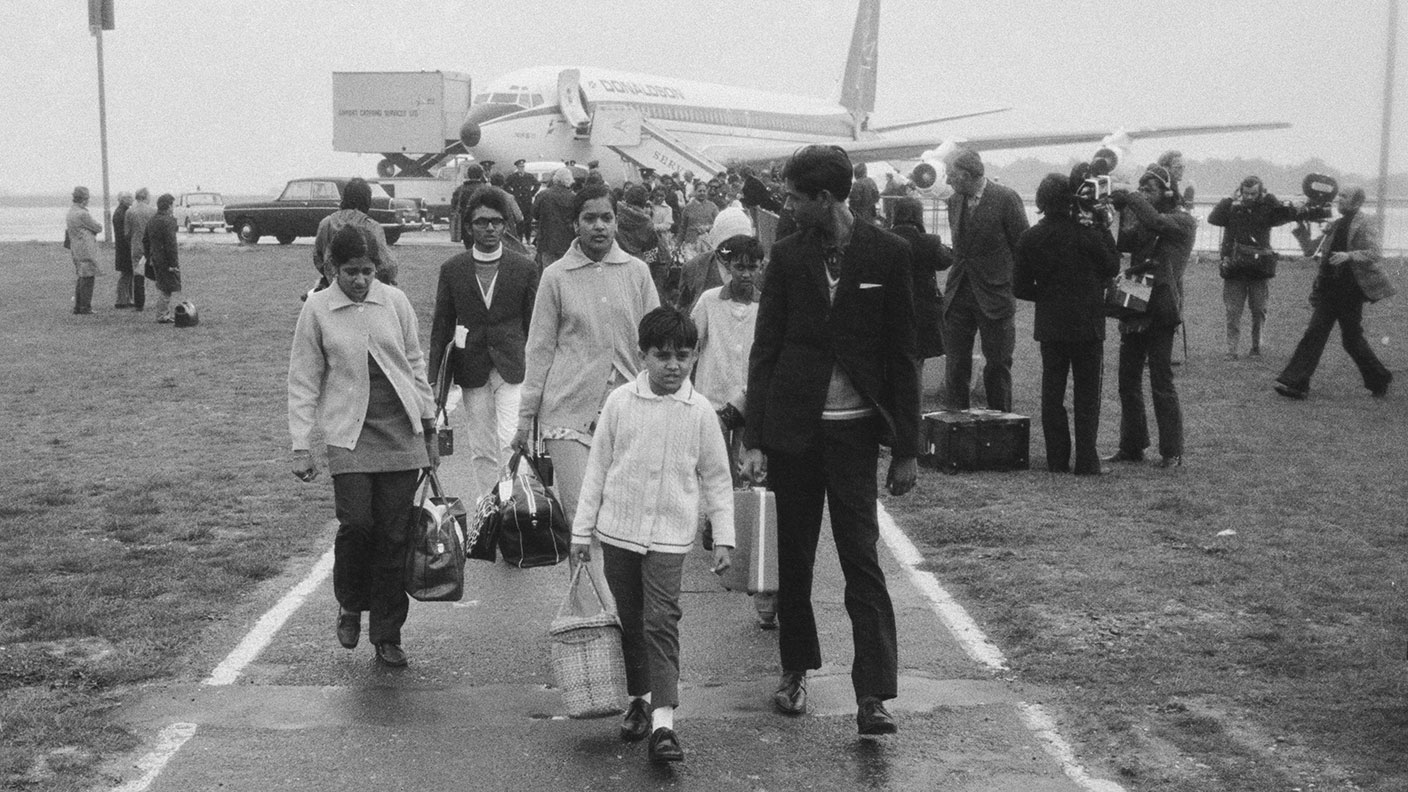18 September 1972: Ugandan refugees reach the UK
The first Ugandan refugees fleeing persecution in Idi Amin's Uganda arrived in Britain seeking new homes, on this day in 1972.


Get the latest financial news, insights and expert analysis from our award-winning MoneyWeek team, to help you understand what really matters when it comes to your finances.
You are now subscribed
Your newsletter sign-up was successful
Want to add more newsletters?

Twice daily
MoneyWeek
Get the latest financial news, insights and expert analysis from our award-winning MoneyWeek team, to help you understand what really matters when it comes to your finances.

Four times a week
Look After My Bills
Sign up to our free money-saving newsletter, filled with the latest news and expert advice to help you find the best tips and deals for managing your bills. Start saving today!
In the 19th century 30,000 Indians were recruited by the British to help build a railway in Uganda. Around 2,500 workers died during construction of the "lunatic line". Most returned home once it was completed in 1901. However, around 6,000 stayed.
Their descendants dominated commerce and textiles, accounting for around 20% of Uganda's GDP. Their prosperity led to great resentment. In 1968, only six years after Ugandan independence, laws were passed to restrict the jobs that ethnic Indians could hold. Then, in 1971, Idi Amin seized power from Milton Obote in a military coup. Amin ratcheted up the anti-Indian propaganda, calling Indians "thieves".
In August 1972, Amin decided to expel all Asians, giving them 90 days to leave Uganda. Many Ugandan Asians had British citizenship, so expected to be able to move to the UK, and despite political pressure, including protests from far-right groups, then-prime minister Ted Heath allowed them to do so. Of the 80,000 expelled, 30,000 came to the UK, with the rest going to India, Canada and America. Due to existing connections many settled in Leicester, although the council ran newspaper advertisements urging them not to come.
MoneyWeek
Subscribe to MoneyWeek today and get your first six magazine issues absolutely FREE

Sign up to Money Morning
Don't miss the latest investment and personal finances news, market analysis, plus money-saving tips with our free twice-daily newsletter
Don't miss the latest investment and personal finances news, market analysis, plus money-saving tips with our free twice-daily newsletter
While they had lost most of their possessions and savings, the new arrivals were largely well educated. Many had management experience, and set up new firms in the UK, particularly in the textiles and jewellery sectors. Uganda itself fell into chaos and an estimated 500,000 people were killed before the mentally unstable Amin was forced into exile in 1979.
Get the latest financial news, insights and expert analysis from our award-winning MoneyWeek team, to help you understand what really matters when it comes to your finances.

-
 Should you buy an active ETF?
Should you buy an active ETF?ETFs are often mischaracterised as passive products, but they can be a convenient way to add active management to your portfolio
-
 Power up your pension before 5 April – easy ways to save before the tax year end
Power up your pension before 5 April – easy ways to save before the tax year endWith the end of the tax year looming, pension savers currently have a window to review and maximise what’s going into their retirement funds – we look at how
-
 31 August 1957: the Federation of Malaya declares independence from the UK
31 August 1957: the Federation of Malaya declares independence from the UKFeatures On this day in 1957, after ten years of preparation, the Federation of Malaya became an independent nation.
-
 13 April 1960: the first satellite navigation system is launched
13 April 1960: the first satellite navigation system is launchedFeatures On this day in 1960, Nasa sent the Transit 1B satellite into orbit to provide positioning for the US Navy’s fleet of Polaris ballistic missile submarines.
-
 9 April 1838: National Gallery opens in Trafalgar Square
9 April 1838: National Gallery opens in Trafalgar SquareFeatures On this day in 1838, William Wilkins’ new National Gallery building in Trafalgar Square opened to the public.
-
3 March 1962: British Antarctic Territory is created
Features On this day in 1962, Britain formed the British Antarctic Territory administered from the Falkland Islands.
-
10 March 2000: the dotcom bubble peaks
Features Tech mania fanned by the dawning of the internet age inflated the dotcom bubble to maximum extent, on this day in 2000.
-
9 March 1776: Adam Smith publishes 'The Wealth of Nations'
Features On this day in 1776, Adam Smith, the “father of modern economics”, published his hugely influential book The Wealth of Nations.
-
 8 March 1817: the New York Stock Exchange is formed
8 March 1817: the New York Stock Exchange is formedFeatures On this day in 1817, a group of brokers moved out of a New York coffee house to form what would become the biggest stock exchange in the world.
-
7 March 1969: Queen Elizabeth II officially opens the Victoria Line
Features On this day in 1969, Queen Elizabeth II took only her second trip on the tube to officially open the underground’s newest line – the Victoria Line.